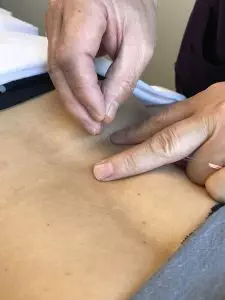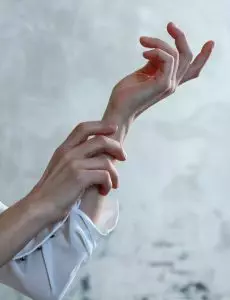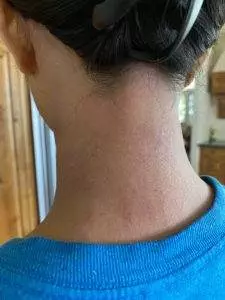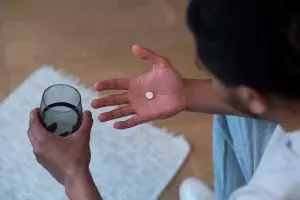-
 Art of Wellness Acupuncture & Traditional Chinese Medicine (TCM)11704 Wilshire Blvd, Suite 295, Los Angeles, CA, 90025
Art of Wellness Acupuncture & Traditional Chinese Medicine (TCM)11704 Wilshire Blvd, Suite 295, Los Angeles, CA, 90025
myartofwellness@gmail.com310-451-5522 Office Hours
MonClosedTue7:30 am --4 pmWed7:30 am --4 pmThu7:30 am -- 4 pmFri7:30 am -- 4 pmSat7:30 am -- 4 pmSunClosedOur office opens from Tuesdays to Saturdays 7:30 am to 4 pm, will be closed on Memorial day, Independent day, Labor day, Thanksgiving day, Christmas and New year.
-
Recent Posts
- Chinese New Year 2026: Year of the Horse
- Acupuncture and TCM Treatment for Perimenopause Symptoms
- How to Treat Insulin Resistance With Acupuncture and TCM
- How to Treat Metabolic Syndrome With Acupuncture and TCM
- How to Treat Syncope With Acupuncture and TCM
- How to Treat Thoracic Outlet Syndrome With Acupuncture and TCM
- How to Treat Dupuytren’s Contracture With Acupuncture and TCM
- How to Treat Nutcracker Syndrome With Acupuncture and TCM
- How to Treat Rosacea With Acupuncture and TCM
- How to Treat Perioral Dermatitis With Acupuncture and TCM
- Lymphatic Drainage With Acupuncture and TCM
- How to Treat Turf Toe With Acupuncture
- How to Treat Nerve Pain With Acupuncture and TCM
- How to Treat Watery Eyes With Acupuncture and TCM
- How to Treat Ovarian Cysts With Acupuncture and TCM
- How to Treat Dystonia With Acupuncture and TCM
- Sign up to receive news and updates and get my free report:“The Top 10 Reasons to Try Acupuncture”

November 2025 M T W T F S S 1 2 3 4 5 6 7 8 9 10 11 12 13 14 15 16 17 18 19 20 21 22 23 24 25 26 27 28 29 30
Uncategorized
How to Treat Diarrhea With Acupuncture and TCM
By Qineng Tan, L.Ac., Ph.D. & Xiaomei Cai, L.Ac., Ph.D.

Chronic diarrhea, explosive diarrhea, diarrhea after eating? Diarrhea may be related to IBS (irritable bowel syndrome), or an IBD (inflammatory bowel disease), or a reaction to a food allergy, parasites, or stress. Acupuncture and TCM offer an alternative diarrhea treatment, so you can get relief from stomach pain and diarrhea.
Why Do I Have Diarrhea?
There can be many different causes of diarrhea, also known as loose stool. Acute diarrhea, which only lasts one or two days, will usually go away on its own.
Watery diarrhea that lasts a few days is usually due to food poisoning. Eating something that was rotten, or not cooked properly to destroy bacteria, can cause vomiting and diarrhea. Watery diarrhea can also happen when you have some type of viral infection, such as the “stomach flu.”
Chronic diarrhea, or persistent diarrhea, which lasts for weeks, or bouts of diarrhea that come and go frequently, may be related to IBS symptoms, IBD symptoms, Celiac disease, SIBO, or some other problem.
More than 6% of adults in the U.S. report having chronic diarrhea. Chronic diarrhea in children is also a serious health concern worldwide.
Top 10 Causes of Diarrhea
Diarrhea is a common condition that everyone experiences sometimes. Usually it is temporary, but it can become persistent and serious enough to require diarrhea treatment. The most common reasons a person experiences loose bowel movements include:
- Bacterial infection, traveler’s diarrhea, food poisoning, unsafe drinking water
- Viral infection, such as rotavirus, viral gastroenteritis, stomach flu
- Parasite infection, such as giardiasis
- Food allergy, food intolerance, food sensitivity, Celiac disease
- Reaction to medications like antibiotics, antidepressants, or Metformin
- Reaction to radiation therapy, cancer treatment
- IBS – diarrhea, constipation, and stomach cramps are common IBS symptoms
- IBD – colitis or Crohn’s disease, inflammatory autoimmune disorders that affect the gut
- Malabsorption of food, poor absorption of nutrients
- Menstrual cycle or Perimenopause – changes in hormones/estrogen can cause diarrhea
Certain foods can cause diarrhea, including: too much coffee, artificial sweeteners like mannitol and sorbitol, and red food coloring. Magnesium supplements can also cause loose stools.
If diarrhea lasts more than a few days, it is important to seek healthcare advice. Chronic diarrhea can lead to dehydration and fatigue, and may be happening because of some more serious condition that needs to be addressed.
What Causes Chronic Diarrhea?

Bouts of diarrhea that keep recurring can be a symptom of disorders such as:
- IBD (inflammatory bowel disease) – the most common IBDs are ulcerative colitis and Crohn’s disease. IBD symptoms usually include bloody diarrhea and abdominal pain. IBDs can cause chronic or recurring diarrhea, which can lead to dehydration, fatigue, and weight loss. IBDs can be mild, or so serious that they cause long-lasting damage to the gastrointestinal tract.
- Ulcerative colitis – an autoimmune disorder that causes inflammation and ulcers, or open sores, in the lower gastrointestinal system, including the colon and rectum.
- Crohn’s disease – an autoimmune disorder that causes inflammation mainly in the small intestine, but can affect any part of the GI tract.
- IBS – Irritable bowel syndrome can seem similar to IBDs, also causing recurring bouts of diarrhea and stomach pain. However, IBS is considered a functional gastrointestinal disorder. It is quite common. People with IBS symptoms may have alternating bouts of diarrhea and constipation. People who tend to have more diarrhea-dominant IBS have “IBS-D.”
- Celiac disease – an autoimmune disorder in which a reaction to eating wheat gluten causes serious inflammation of the GI system, leading to abdominal pain, bloated stomach, diarrhea, malnutrition, fatigue, and skin rashes.
With these conditions, diarrhea is brought on periodically—sometimes alternating with constipation, as in some cases of IBS—by factors having to do with the diet or stress, or with autoimmune processes.
Some surgeries that affect the gastrointestinal organs—like gastric bypass, gastric sleeve, or gallbladder removal—can cause chronic diarrhea.
Chronic diarrhea can be caused by an inability of the intestinal walls to absorb nutrients, and/or of the walls of the colon to absorb liquid. It may also be due to excessive action of the intestine in terms of peristalsis, the squeezing of the intestine to move matter through.
Diarrhea Treatment
Acute diarrhea usually goes away on its own in a day or two. Often, people will use OTC remedies for diarrhea and stomach pain, such as Immodium or Pepto-Bismol.
If you have been experiencing persistent diarrhea and seek medical advice, a doctor will perform tests to figure out what is causing the diarrhea, and will offer electrolyte fluids to help with dehydration. Blood tests or a stool test will show if the diarrhea is due to a bacterial infection or parasitic infection.
If chronic diarrhea is determined to be related to a medication you are already taking, then that may need to be adjusted.
Discovery of IBS or an IBD usually involves more diagnostic testing, including a colonoscopy and/or endoscopy, to see if there is inflammation or blockage in the GI tract.
Medical treatment for IBS may involve being offered antispasmodic medications that relax the intestinal walls and slow down the movement of the bowels and can help relieve stomach cramps and abdominal cramping. Dietary changes and behavioral therapy may be recommended.
Pharmacological treatment for IBDs like colitis and Crohn’s usually involves taking a combination of anti-inflammatories and immunosuppressants, to reduce inflammation in the gut and to block the inappropriate autoimmune responses that are triggering the inflammation. Unfortunately, steroids and medications like Xeljanz can cause other side effects and health problems.
Medical treatment for chronic diarrhea may help relieve symptoms and reduce the frequency of bouts of diarrhea, but it does not necessarily address the underlying causes of diarrhea.
Acupuncture and TCM offer an effective alternative treatment for diarrhea that is more suited to each patient’s individual situation.
Can Acupuncture Help Diarrhea?

Chronic diarrhea, according to TCM theory, is usually considered to be related to the health of the spleen. In TCM, the organ systems all interact harmoniously, unless there is imbalance. The imbalance of one organ system may throw off other systems, leading to various symptoms.
In TCM, the spleen is responsible for breaking down the nutrients from food and converting them into energy. If the spleen is not functioning properly, watery stool is often the result. Diarrhea, stomach pain, and other symptoms may differ from person to person, depending on how the spleen is interacting with the liver, stomach, or kidneys.
Common Chinese Medicine diagnosis patterns for chronic diarrhea include:
- Spleen Deficiency with Liver Qi stagnation: mucus in the stool, abdominal pain, cramping, gassiness, bloated stomach, irritability, and feelings of depression
- Spleen Deficiency with Stomach deficiency: watery stools, poor appetite, feeling full quickly, stomach distended after eating, pallor, and fatigue
- Spleen Deficiency with Kidney Deficiency: diarrhea in the morning, partially digested food in the stool, abdominal pain, lower back pain, knee pain, feeling cold
Acupuncture treatment for diarrhea, which may include moxibustion and herbs, aims to support the health of the spleen and other organs. Acupuncture has been shown to help relieve diarrhea and constipation related to IBS. Acupuncture treatment can also help with reducing stress and anxiety, which are common triggers for IBS symptoms.
Acupuncture can also help with diarrhea due to IBDs like ulcerative colitis and Crohn’s disease by reducing inflammation and helping to balance immune responses. TCM treatment for Crohn’s disease or colitis, incorporating nutrition and herbal supplements, can help improve the gut biome and strengthen the lining of the intestinal walls.
Acupuncture for Diarrhea Near Me, Los Angeles, West L.A., and Santa Monica
TCM treatment with an experienced acupuncturist near me can be very beneficial for anyone dealing with ongoing gastrointestinal distress. Both adults and children can find relief from diarrhea, constipation, stomach cramps, bloating, and abdominal pain related to conditions like IBS, IBDs, or celiac disease through acupuncture and herbs. At Art of Wellness, we have over 30 years of experience helping people with gastric disorders of all kinds.
*This article is for education from the perspective of Traditional Chinese Medicine only. The education provided by this article is not approved by FDA to diagnose, prevent, treat and cure human diseases. It should not stop you from consulting with your physician for your medical conditions. Traditional Chinese Medicine is based on Qi, which is an invisible force that usually cannot be observed by modern science. Because science focuses on testing ideas about the natural world with evidence obtained through observation, these aspects of acupuncture can’t be studied by science. Therefore acupuncture and Chinese herbs are often not supported by double-blind, randomized trials, and they are considered alternative medicine therapies in the United States.
How to Treat Dermatitis With Acupuncture and TCM
By Xiaomei Cai, L.Ac., Ph.D. & Qineng Tan, L.Ac., Ph.D.

Itchy skin, dry skin irritation, or skin rash? Dermatitis is a broad term that covers many skin problems, including eczema, heat rash, diaper rash, and other kinds of skin allergy. Acupuncture and TCM offer a way to treat dermatitis, eczema, and itchy skin conditions.
The medical term “dermatitis” can refer to many types of skin irritation that involve inflammation. Inflamed skin can cause itching, redness, dryness, and rashes. A dermatitis itchy skin rash is caused by an inflammatory response related to the immune system.
Eczema, also known as atopic dermatitis, is a common inflammatory skin condition; over 30 million people in the U.S. have some type of eczema. Eczema can show up as early as a few weeks after birth in some babies, or during childhood, or during adulthood.
While what exactly causes atopic dermatitis to occur in some people is not completely understood, it is generally accepted that it is a combination of genetic, immunological, and environmental factors.
Dermatitis is not contagious; it is not passed from person to person. However, you are more likely to be susceptible to dermatitis or eczema if other people in your family have it, or if there is a family history of allergies and asthma.
Eczema and other forms of dermatitis tend to “flare up” when a person is exposed to some sort of trigger and has an allergic reaction. This could be due to something in the environment, or some product or plant that touched the person’s skin. It can also be due to internal causes, like an autoimmune problem, excess heat in the body, or emotional stress.
Signs of Dermatitis:
- Itchy dry skin rash skin irritations (pruritus)
- Red rash, red bumps on skin
- Rash like a burn
- Blisters
- Thick skin, hard skin, swelling
- Scaly skin, creasing skin
- Crusty sores, painful skin sores
- Bleeding rash, oozing skin rash
- Flaking skin (dandruff)
Symptoms of dermatitis can come and go. Scratching at itchy patches or blisters associated with dermatitis can cause a skin infection, so it is important to manage and control this condition.
Acupuncture and TCM herbs can help relieve itchy skin and inflammation, while also helping to balance the immune system to prevent further eczema flare ups.
Top 10 Types of Dermatitis

Many different conditions can cause dermatitis—meaning, inflammation of the skin. Different kinds of dermatitis include:
- Atopic dermatitis – also known as eczema, marked by dry, itchy, red patches of skin.
- Contact dermatitis – this is when a skin rash breaks out due to exposure to some kind of external irritant, such as a cosmetic product, piece of jewelry, or plant like poison ivy.
- Seborrheic dermatitis – flaking skin, also known as dandruff, occurs mostly on oily areas of the skin.
- Dyshidrotic dermatitis – (also called dyshidrotic eczema or pompholyx) small, itchy, fluid-filled blisters that appear on the soles of the feet or palms of the hands, or the tips of the fingers or toes. The blisters may break out due to exposure to an allergen or when hands and feet are often wet or sweaty.
- Diaper rash – a red rash that forms on a baby’s bottom or perineal area due to contact with the diaper and frequent wetness.
- Neurodermatitis – (also called lichen simplex chronicus) is a type of eczema marked by one or two very itchy, scaly patches that can become thickened and leathery – most often affects an area on the neck, ankle, arm, or groin. Neurodermatitis can itch so intensely that it affects a person’s sleep, and can be triggered by stressful events.
- Nummular dermatitis – (also known as discoid eczema) is marked by round, coin-shaped lesions that appear on the limbs or torso. These lesions can become infected with scratching, and may be related to poor circulation.
- Perioral dermatitis or Periorificial dermatitis – pink scaly patches or pustules that form around the mouth. This occurs more commonly in young women. Some doctors believe it may be related to candida, and/or influenced by hormones.
- Stasis dermatitis – (also called venous stasis dermatitis) itchy, scaly, discolored skin around the lower legs and ankles, due to poor circulation and blood pooling in the lower extremities.
- Dermatitis herpetiformis – a bumpy, blistered skin rash (looks similar to a herpes outbreak, but is not actually related to herpes simplex) that is related to celiac disease, triggered by ingesting gluten or wheat.
Psoriasis can look similar to eczema, but it is a separate condition that can coexist with various types of dermatitis. Rosacea redness can also look similar to dermatitis, but is a distinctly different condition that can occur at the same time as dermatitis.
What Causes Dermatitis?
A combination of the immune system reacting to irritants in the environment, and genetic predisposition.
Common environmental factors that can contribute to dermatitis include:
- Chemicals
- Air pollutants
- Fluoride in water or toothpaste
- Fragrances, perfumes, air freshener
- Fragrances in skin products, cosmetics, lotions, soaps
- Tobacco smoke
Other conditions that may occur simultaneously with dermatitis include: depression, anxiety, insomnia, allergies, and asthma.
Eczema Treatment
There are many different types of medical treatment for dermatitis. Some are topical—meaning, applied to the skin. Others are taken in an oral pill form, or injected into the skin.
Topical corticosteroid creams, which can help reduce skin inflammation, are the most common treatment for eczema and dermatitis. These can help reduce itching and swelling. However, prolonged use of topical steroids can cause side effects like thin skin, spider veins, and acne. Steroids can affect growth in children, and can cause eye problems like glaucoma or cataracts in older people.
Steroids that are taken orally, like Prednisone, can help control systemic inflammation for a time, while patches of scaly skin heal. However, there are many serious side effects associated with taking steroids for a long time, and it is also possible to experience a “rebound effect.” This means that the dermatitis symptoms come back even stronger when a person stops taking the steroid medications.
Calineuron inhibitors and JAK inhibitors are designed to stop certain chemical processes in the body related to immune responses. They can help block immune system reactions to calm the dermatitis skin problems.
There are many new types of treatment for eczema being developed. Phototherapy, or light therapy, using ultraviolet (UV) light, may be tried when topical treatments are not working for eczema that is widespread over the whole body. However, this kind of therapy can cause prematurely aging skin, changing skin pigmentation, and potentially increase the risk of skin cancer.
Acupuncture and TCM herbal supplements offer a way to treat eczema without any damaging side effects.
Can Acupuncture Help Dermatitis and Eczema?
One of the core concepts of TCM is the 5 Elements Theory, according to which organs of the body correspond with seasons and weather conditions. According to this theory, eczema and other kinds of dermatitis arise due to imbalances within the internal organ systems affected by external conditions, such as Wind and Heat.
The lungs, especially, are connected to the skin in the TCM system. The lungs can be affected by excess heat or stagnation in the liver. Thus, an itchy red rash on the skin is actually an expression of a deeper, more complex internal condition. Therefore, it is necessary to treat dermatitis and eczema not only with topical creams, but to use acupuncture and herbs to balance all of the organ systems.
The acupuncturist gets clues about which internal organs are out of harmony by observing the eczema symptoms: the type of rash or scaly skin, the color and temperature. Each individual case of dermatitis is unique, triggered by different irritants, and arising from a person’s overall state of health.
One study showed that acupuncture treatment worked better than antihistamines for helping to reduce the itchiness of atopic dermatitis pruritus. Acupuncture also helps to reduce inflammation and overall stress.
Studies done in China to determine the efficacy of an herbal formulation developed for eczema showed that it worked well to reduce itching and recurrence of rash.
As systematic review of over 350 studies on acupuncture for eczema showed the patients who were given acupuncture treatment instead of conventional treatment experienced better overall symptom reduction and quality of life.
Top 5 Tips to Prevent Dermatitis Itchy Skin

There are things you can do to help prevent eczema flare-ups from occurring and avoid recurrent rashes.
- Do not bathe in very hot water.
- Keep showers short and warm, and use gentle cleansers, without strong chemical perfumes.
- Do not scrub your skin during or after the shower, while drying. Pat gently.
- Use moisturizer frequently to maintain a protective layer on your skin.
- Wear long pants and sleeves when hiking and adventuring. Wear gloves when gardening.
Acupuncture Near Me for Dermatitis in Los Angeles and Santa Monica
Acupuncture can help relieve itching, aid in the healing of lesions, help stimulate healthier immune responses, and reduce stress. TCM treatment can also be sought as a safe treatment for children with eczema, or during pregnancy, as it is free of negative side effects.
TCM can also help patients with other skin conditions, including signs of aging, acne, hives (urticaria), rosacea, vitiligo, and psoriasis.
*This article is for education from the perspective of Traditional Chinese Medicine only. The education provided by this article is not approved by FDA to diagnose, prevent, treat and cure human diseases. It should not stop you from consulting with your physician for your medical conditions. Traditional Chinese Medicine is based on Qi, which is an invisible force that usually cannot be observed by modern science. Because science focuses on testing ideas about the natural world with evidence obtained through observation, these aspects of acupuncture can’t be studied by science. Therefore acupuncture and Chinese herbs are often not supported by double-blind, randomized trials, and they are considered alternative medicine therapies in the United States.
How To Help Dependence on Hydrocodone and Other Opioid Pain Medication With Acupuncture and TCM
By Qineng Tan, L.Ac., Ph.D. & Xiaomei Cai, L.Ac., Ph.D.

Many people are prescribed strong pain medication when they are in need of pain relief. Opioid drugs may help relieve pain, but they can also create a physical dependence as a person develops a tolerance for the painkillers. Acupuncture and TCM offer an alternative to opiate drugs and opioids like Codeine and Vicodin for treating pain, and a way to help treat both opioid dependence and addiction.
We often hear in the news that the U.S. is facing an “opioid epidemic.” Recent statistics suggest that over ten million Americans may have an opioid use disorder. CDC data showed that over 75,000 people died from opioid overdoses in 2021.
Some of the most commonly used pain medications include:
- Oxycodone (Oxycontin)
- Hydrocodone (Vicodin)
- Oxymorphone
- Morphine
- Methadone
- Fentanyl
- Codeine
- Tramadol
- Buprenorphine
Opioid medications are also known as “narcotics.” “Opiate” drugs are derived naturally from the poppy plant. These include: opium, codeine, and heroin. “Opioids” are synthetically produced in a lab. These include: oxycodone and fentanyl.
People are prescribed opioids or opiates to help them deal with severe pain, but the medications themselves can then become the primary cause of suffering in their lives. Roughly a quarter of people who are prescribed opioid pain medications end up misusing them.
Opioid misuse can mean different things, like: taking more than the prescribed dosage, using someone else’s medication, or continuing to take the medication even though it is having a negative impact on your health and life.
Dependence on opioids is different from addiction, and it is possible to experience drug dependence with or without also having a substance use disorder.
When a person becomes dependent on a medication, it means that they require a certain dose of that substance in order to avoid withdrawal symptoms. This is why these medications are closely monitored by the prescribing medical doctor, so that the dosage is carefully controlled. A person may need to be slowly weaned off the medications when they are no longer necessary, so as to avoid withdrawal.
It is also possible for a person to develop an addiction to opioids, as they stimulate the release of endorphins, which help to block pain signals and produce positive feelings. When this process is repeated over and over, the body starts producing less endorphins naturally, and a higher dosage of the opioid medication is required to produce the same effect; this is what we mean by “tolerance” to the drug.
Addiction to opioids—or an opioid use disorder—is more likely the longer a person takes them—for example, for a chronic pain condition. Other factors, like depression or anxiety, high levels of stress at work or home, and use of other substances like tobacco and alcohol, can also play a role in addiction risk.
It can be difficult, even for doctors, to distinguish between physical dependence and addiction. Addiction is usually defined by “abuse” or “misuse.” When a person feels that they cannot live without the medication, though, there is clearly a problem.
Acupuncture and TCM may play an important role in helping both individuals, and society as a whole, overcome dependence on opioid pain medications because it addresses the problem in several ways.
Top 10 Reasons Acupuncture Is a Good Alternative to Opioids for Pain Relief

Acupuncture has a natural analgesic effect and can help relieve severe pain and chronic pain, without negative side effects.
- Acupuncture and other TCM modalities are an effective alternative for pain relief.
- Acupuncture can be used to treat both acute pain and chronic pain.
- Acupuncture can help reduce the need for opioid-like medications after surgeries, by helping relieve postoperative pain.
- Acupuncture and herbs can help postoperative wounds heal more quickly.
- Acupuncture can help cancer patients by providing pain relief and additionally helping to relieve nausea and mitigating other side effects of cancer treatment.
- Acupuncture provides pain relief without negative side effects.
- Acupuncture can help individuals who are trying to stop taking opiates avoid withdrawal symptoms.
- Acupuncture can help alleviate cravings for addictive substances.
- Acupuncture helps to effect the release of endorphins naturally, which provides the same good feelings as drugs initially do.
- Acupuncture can be a more cost effective way to treat pain and addiction than other methods.
Treatment for Opioid Dependence

Methadone Maintenance treatment (MMT) is widely used to treat opioid addiction or dependence. This method involves replacing the opioid drug with methadone, which is a synthetic opioid, so it acts on the same centers of the brain, which helps to reduce cravings and withdrawal symptoms. This can help people wean themselves off of pain medications or heroin. However, there can be side effects, and MMT does not help everyone stop using or misusing opiates or prescription pain medications.
Long-term use of opioids can be detrimental to a person’s overall health, both mentally and physically. Hydrocodone side effects and oxycodone side effects can include: drowsiness, dizziness, nausea, vomiting, constipation, irregular heartbeat, and increased risk of respiratory problems for people with asthma or COPDs like emphysema or chronic bronchitis.
Mental health issues and opioid misuse often go together. People who suffer from depression or anxiety are much more likely to use opioids to treat pain and then become emotionally dependent on them.
Overall, evidence suggests that pharmacological methods for treating opioid misuse are not very successful. TCM and acupuncture offer an alternative treatment for opioid dependence.
Can Acupuncture Help Relieve Pain Better Than Opioids?
While there is still much to be done in the way of scientific research to demonstrate exactly how acupuncture is able to effect changes in the body and help relieve pain, there is ample enough evidence to convince the medical community that acupuncture does, indeed, have a significant analgesic effect. For two decades now, the WHO has recommended acupuncture and TCM for many different pain conditions, including:
- neck pain
- back pain
- low back pain
- Sciatica, hip pain
- postoperative pain
- headaches and migraines
- shoulder pain
- heel pain, plantar fasciitis
- TMJ pain
- Neuropathy pain
Acupuncture may work so well to relieve pain because it appears to have an effect on the central nervous system and opioid peptide neurotransmitters, including endorphins. This means that acupuncture works on the opioid receptors in the brain.
One study of patients who were in methadone treatment for opioid dependence found that people who received acupuncture were able to reduce the amount of methadone they needed.
A study on patients who had lumbar spine surgery to help severe back pain showed that acupuncture worked well as a postoperative analgesic.
Acupuncture Near Me for Pain Management and Opioid Dependence in Los Angeles
It is absolutely necessary for so many people to find pain relief when they have an acute condition, or a chronic pain condition, or are in treatment for cancer or other serious illness. Serious pain causes mental anguish as well as physical limitations. Acupuncture and TCM offer an alternative treatment for pain management that helps not only to block pain, but also to relieve stress and anxiety. At Art of Wellness, we have over 30 years of experience helping people to manage pain safely and effectively.
*This article is for education from the perspective of Traditional Chinese Medicine only. The education provided by this article is not approved by FDA to diagnose, prevent, treat and cure human diseases. It should not stop you from consulting with your physician for your medical conditions. Traditional Chinese Medicine is based on Qi, which is an invisible force that usually cannot be observed by modern science. Because science focuses on testing ideas about the natural world with evidence obtained through observation, these aspects of acupuncture can’t be studied by science. Therefore acupuncture and Chinese herbs are often not supported by double-blind, randomized trials, and they are considered alternative medicine therapies in the United States.
Chinese New Year 2023 Year of the Rabbit
by Qineng Tan, L.Ac., Ph.D. and Xiaomei Cai, L.Ac., Ph.D.

The Lunar New Year will begin on January 23, 2023. It is the Year of the Rabbit! The shift in energy will be significant as we move out of 2022, the Year of the Tiger, and into the more patient and gentle Rabbit Year 2023.
The Chinese Zodiac, like the Western Zodiac, is made up of twelve signs, each represented by an animal or magical creature. In Western astrology, the signs cycle through the twelve months every year, but in Chinese astrology, each sign gets a whole year to itself, and a cycle lasts twelve years.
Chinese Astrology also incorporates the five elements: Water, Metal, Wood, Earth, and Fire. The zodiac moves through a different element each year. 2023 will be the Year of the Water Rabbit. Because the Yin Water element is associated with the color black, some people call this the “Year of the Black Rabbit.”
The Yin Water element represents sensitivity, intuition, and, in its most positive form, the way of inner peace. The Water Rabbit Year promises a period of rest and reflection after the dynamic Year of the Tiger.
In Chinese culture the Rabbit is associated with the moon. According to ancient Chinese legend, the Jade Emperor disguised himself as an old beggar in order to find a trustworthy helper. The Rabbit offered itself as a meal to the starving man by jumping into the fire. The Emperor revealed his true self and took the generous Rabbit to the moon, where together they created the Elixir of Life. The outline of the Jade Rabbit can be seen on the moon, using a mortar and pestle to mix herbs into a powerful potion of healing and longevity.
The rabbit is a symbol of good luck. In Chinese philosophy, rabbits are also considered to be emblematic of patience. So, as long as you can bide your time until the moment is right to act in 2023, you should experience some lucky breaks!
What Is My Sign In Chinese Astrology?
To find your Chinese horoscope, look for your birth year:
(As the lunar year begins on a different date each year, check more closely if your birthday lands in January or February)
- Rabbit 1939, 1951, 1963, 1975, 1987, 1999, 2011, 2023
- Dragon 1940, 1952, 1964, 1976, 1988, 2000, 2012
- Snake 1941, 1953, 1965, 1977, 1989, 2001, 2013
- Horse 1942, 1954,1966, 1978, 1990, 2002, 2014
- Goat 1943, 1955, 1967, 1979, 1991, 2003, 2015
- Monkey 1944, 1956, 1968, 1980, 1992, 2004, 2016
- Rooster 1945, 1957, 1969, 1981, 1993, 2005, 2017
- Dog 1946, 1958, 1970, 1982, 1994, 2006, 2018
- Pig 1947, 1959, 1971, 1983, 1995, 2007, 2019
- Rat 1936, 1948, 1960, 1972, 1984, 1996, 2008, 2020
- Ox 1937, 1949, 1961, 1973, 1985, 1997, 2009, 2021
- Tiger 1938, 1950, 1962, 1974, 1986, 1998, 2010, 2022
Chinese Zodiac – Year of the Rabbit Horoscope

2022 was the Year of the Water Tiger. The Tiger was brave and ambitious, ready to pounce when the moment of opportunity presented itself. Then, there were periods of rest, like afternoon naps after a good lunch. The Water element served to soften Tiger’s sharp edges.
As you might imagine, the Rabbit is known for its gentle spirit. Rabbits tend to be “homebodies,” content to wait patiently, studying and paying attention to every detail. People might underestimate the Rabbit’s quiet strength, but make no mistake; the rabbit can move with speed and agility when the time is right.
Rabbits are social and attractive to many, but they may be reluctant to be very open with their true feelings. They can charm people with their warmth and good manners, and always want to make a good impression. They like to escape into stories or wear stylish fashions to keep things interesting. Rabbits may need a lot of assurance that they are lovable.
How to Create Good Luck for The Water Rabbit Year 2023
If you were born in a Rabbit year, then 2023 is your “ben ming nian.” When it’s “your year,” it can be an exciting yet tumultuous time of new beginnings. According to tradition, is it wise to take certain precautions to protect your health and your luck during your ben ming nian.
Wearing the color red or a jade amulet can help ward off misfortune, while following good Feng Shui arrangements in your home can help maintain a peaceful atmosphere. This is especially true for Rabbits, who tend to favor the colors red and pink, and because of the rabbit’s legendary association with jade.
Avoid risky trips or big renovation products that could cause a commotion. Instead, focus on giving back to your community in any way you can and attending joyous celebrations whenever possible.
Chinese New Year Traditions

The gift-giving tradition of Chinese New Year centers around the iconic red envelope. Within the family, children and adults can both look forward to receiving packets filled with crisp, new bills. Tradition dictates that one give and receive the envelope with both hands—and that the envelopes must never be opened in the presence of the giver. Wait to open it later!
In Chinese culture, there are many ways to extend wishes for a “Happy Lunar New Year” to others. One way to greet people in Mandarin during the New Year season is to say, “新年好!” which translates as “New Year Goodness!”
Feng Shui for Chinese New Year 2023
Giving your home a thorough cleaning and reorganizing is really the most important tradition to observe going into the New Year. A fresh start creates a positive outlook and harmonious setting for your New Year’s celebration and will hopefully carry you through the first months of the year.
Making your bedroom a soothing place for rest and rejuvenation is important.
Happy New Year From Art of Wellness Acupuncture Los Angeles
Chinese New Year is a time of sharing and togetherness, of preparation and taking care of ourselves and others. We take special care of our homes and loved ones, and we take care of our own health. It is a perfect time to come in for acupuncture treatment. Chinese medicine has always been an excellent form of preventive medicine. Taking the time to reset your system is a way of investing in your future good health.
From everyone at Art of Wellness Acupuncture and Chinese Medicine, we wish you 岁岁平安 Peace all year round!
*This article is for education from the perspective of Traditional Chinese Medicine only. The education provided by this article is not approved by FDA to diagnose, prevent, treat and cure human diseases. It should not stop you from consulting with your physician for your medical conditions. Traditional Chinese Medicine is based on Qi, which is an invisible force that usually cannot be observed by modern science. Because science focuses on testing ideas about the natural world with evidence obtained through observation, these aspects of acupuncture can’t be studied by science. Therefore acupuncture and Chinese herbs are often not supported by double-blind, randomized trials, and they are considered alternative medicine therapies in the United States.
How to Treat Constipation With Acupuncture and TCM
By Xiaomei Cai, L.Ac., Ph.D. & Qineng Tan, L.Ac., Ph.D.

Using a laxative or stool softener so that you can have a bowel movement? Everyone experiences constipation once in a while, but chronic constipation can be a serious issue. Acupuncture and TCM offer a natural way to get constipation relief.
Having difficulty going to the bathroom (pooping) is unfortunately a very common problem. Millions of people see their doctor seeking constipation treatment every year. People of all ages—children, adults, and older people—can suffer from slow digestion and hard bowel movements.
Symptoms of constipation can include:
- Dry, hard stool
- Having less than three bowel movements per week
- Bowel movements are difficult and/or painful
- Bloated stomach
- Abdominal cramps
- Nausea
Basically, constipation occurs when the muscles of the large intestine are not properly moving matter through and out of the colon. Slow movement can result in too much water being absorbed by the colon, causing hard, dry stools.
In general, “normal” bowel movements should be soft and easy to pass, and should happen daily. However, it is not at all uncommon for people to have painful constipation and only go a few times a week, or have even less frequent bowel movements (severe constipation).
There can be many different reasons why there is an imbalance of water in the colon, or that the muscles aren’t functioning well enough. These deeper causes need to be addressed if chronic constipation is becoming an issue.
Fortunately, TCM treatment for constipation includes traditional herb formulations that have been used for centuries as a natural laxative, and acupuncture, which can help strengthen the muscle action of the intestines.
Constipation Causes

Constipation can occasionally occur due to short-term circumstances. Many people experience temporary constipation while they are on a trip and using unfamiliar bathrooms. Eating foods that are unusual for you or low in fiber, becoming dehydrated, not getting any physical activity for several days—these situations could all cause sluggish elimination.
IBS (irritable bowel syndrome), which is considered a functional gastrointestinal disorder, often involves periodic constipation (or diarrhea).
Chronic constipation or severe constipation can have many causes. Sometimes constipation can be caused by a bowel obstruction, or something physically blocking the intestine.
Constipation can also be a secondary condition related to another chronic health problem.
Conditions that cause damage to nerves may disrupt the signals that tell the muscles of the colon to move. These could include:
- Diabetes
- Multiple sclerosis
- Parkinson’s disease
- Stroke
- Injury to the spinal cord
Hormonal imbalances or fluctuations can also lead to constipation. Hormone-related conditions that could contribute to constipation include:
- Diabetes
- Pregnancy
- Menstrual cycle, PMS, Period
- Hypothyroidism
- Hyperparathyroidism
Some medications can cause constipation, such as:
- Narcotics, opioid pain medications (such as Vicodin)
- NSAIDs, like ibuprofen
- Some antidepressants (like Zoloft)
- Blood pressure medications
- Sedatives
- Iron supplements
- Antacids like Maalox or Mylanta
- Diuretics
- Medications for overactive bladder, like Ditropan and Detrol
- Parkinson’s medications, like Sinemet
- Nausea medications
Using laxatives and other over-the-counter constipation remedies as a habit can, unfortunately, perpetuate the cycle and lead to ongoing, chronic constipation.
Mental health conditions like depression and anxiety can also affect regularity. TCM and acupuncture can help improve mental health as well as physical health to help bring constipation relief.
Constipation Side Effects
It is very important to find the root cause of constipation and find a solution. Chronic constipation can lead to other serious complications, such as:
- Hemorrhoids
- Anal fissures
- Diverticulitis
- Fecal impaction
- Stress urinary incontinence
Fortunately, acupuncture and TCM offer natural remedies for constipation without habit-forming medications.
Can Acupuncture Help Relieve Constipation?

In TCM, we diagnose a condition based on the pattern of symptoms each individual person is experiencing, as sometimes the same condition—in this case, constipation—can actually be influenced by many different variables. The diagnostic pattern gives us information about what acupuncture points and herbs will help treat that individual case.
According to TCM theory, constipation can present as:
- Yin Deficiency
- Excess Heat
- Qi Deficiency
In older people, chronic constipation is often related to weakness in the kidneys and liver, which leads to malnourishment and stagnant Qi.
In general, TCM constipation treatment will focus on helping to bring more moisture into the colon and clear heat, while activating the Qi (energy) of the bowel and removing physical and energetic blockages.
Many people who suffer from constipation don’t have enough microbiota or “good bacteria” in their colon. Acupuncture and herbs can help to improve the gut biome.
One study showed that electro-acupuncture helped a significant number of people with chronic constipation have more frequent bowel movements.
One study conducted in China found that, after 20 sessions, gastrointestinal patients who received acupuncture for constipation had a success rate of over 82%, meaning they had more frequent and easier bowel movements.
Another study showed that patients who went through a series of acupuncture treatments sustained longer-lasting efficacy from their treatment than patients who had used medicinal laxatives.
One commonly used Chinese formulation for constipation has been shown to help increase levels of oleamide, which is associated with intestinal motility.
Acupuncture Near Me for Constipation in Los Angeles and Santa Monica
At Art of Wellness, we often treat patients for constipation, whether that is their primary complaint, or sometimes a secondary issue to their other concerns. Acupuncture and Chinese herbs are excellent modalities for helping people achieve regularity and better overall digestion.
*This article is for education from the perspective of Traditional Chinese Medicine only. The education provided by this article is not approved by FDA to diagnose, prevent, treat and cure human diseases. It should not stop you from consulting with your physician for your medical conditions. Traditional Chinese Medicine is based on Qi, which is an invisible force that usually cannot be observed by modern science. Because science focuses on testing ideas about the natural world with evidence obtained through observation, these aspects of acupuncture can’t be studied by science. Therefore acupuncture and Chinese herbs are often not supported by double-blind, randomized trials, and they are considered alternative medicine therapies in the United States.